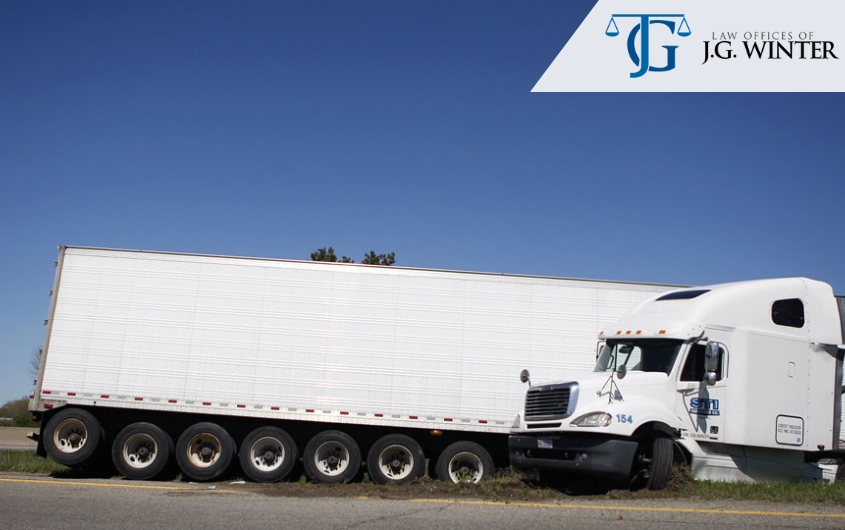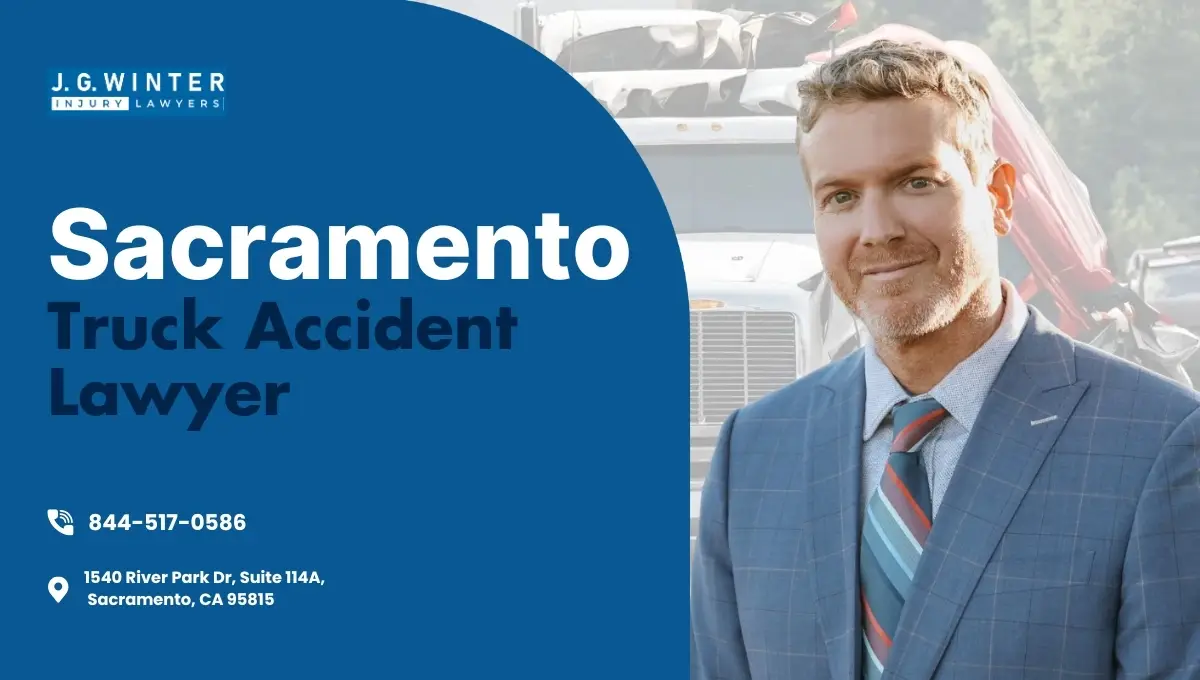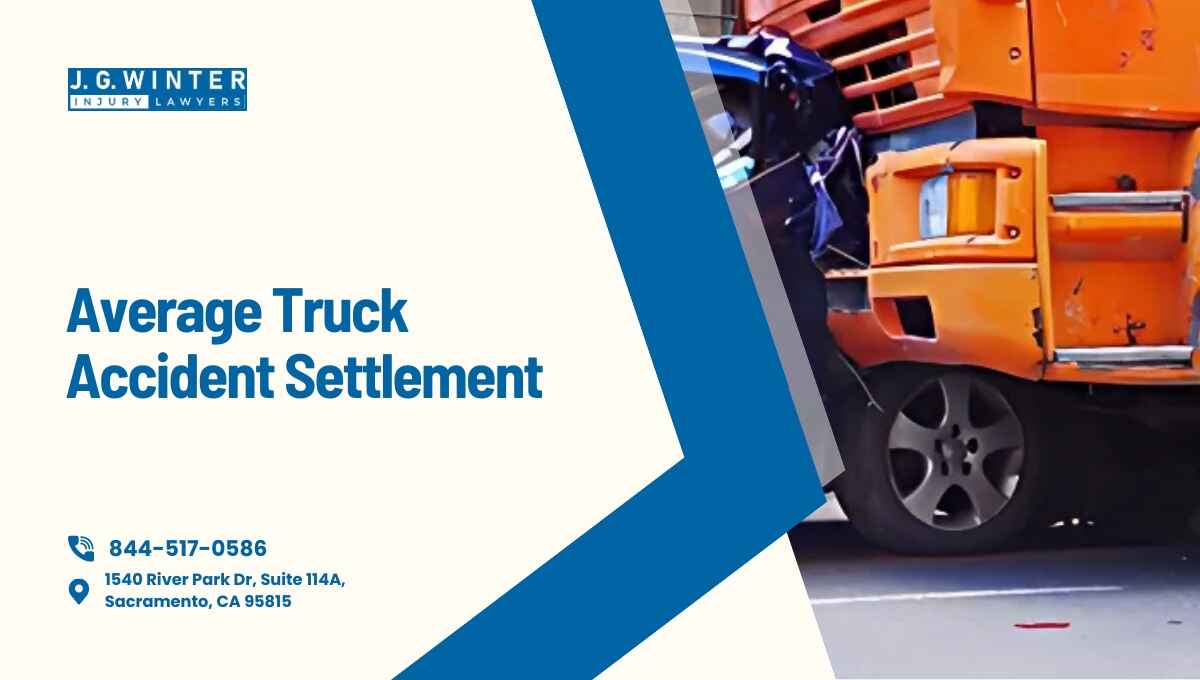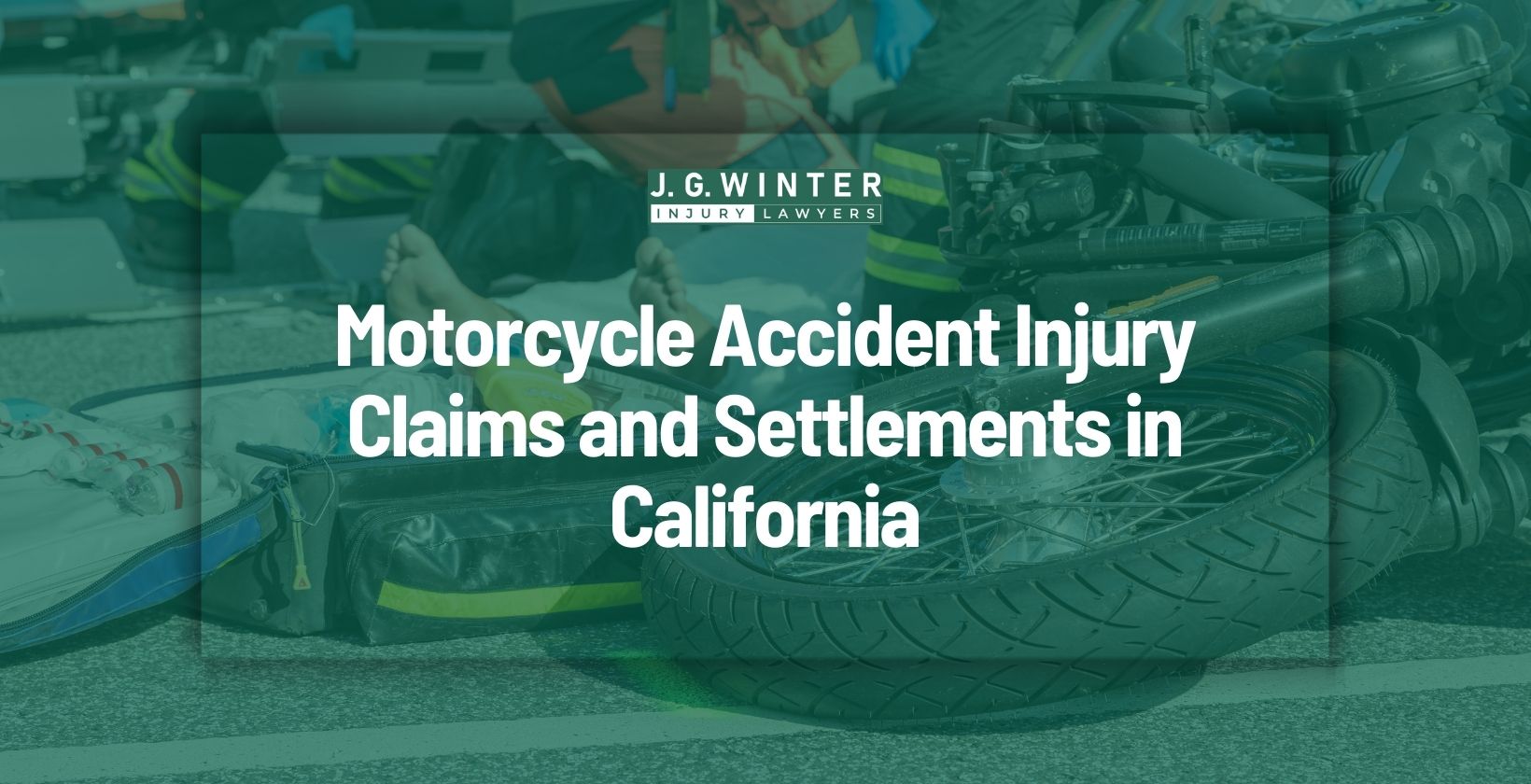Have you ever imagined how fast life could change in just a few seconds because of a crash? A truck accident can alter a person’s sense of normalcy in an instant and leave behind not only physical wounds but also emotional trauma and financial hardship. Knowing the average truck accident settlement in California will help residents who were involved in a crash not settle for less.
While no two cases are exactly alike, settlements can vary significantly based on factors like the severity of injuries, the at-fault party, and the insurance policies involved. In this guide, you will learn what influences truck accident payouts so you can take informed steps and secure the compensation you need.
Key facts about truck accident settlements in California
Truck accident settlements in California help victims recover from financial losses and emotional damages without the delays of a court trial. These settlements compensate victims for the injuries sustained and losses suffered.
What does a truck accident settlement include?
Truck accident settlements aim to ease the financial burden caused by the crash and cover essential expenses like medical bills, lost wages, pain and suffering, and legal fees. Compensation can be paid in the following ways, depending on the circumstances.
- Lump-sum settlement: This option provides the full payout upfront and covers medical bills, repairs, and any other urgent costs. However, once the funds are used, there’s no additional support for long-term care or future expenses.
- Structured settlement: This settlement option distributes compensation in scheduled installments over time. This option is best for individuals who sustained injuries that may require long-term care.
The option available depends on the victim’s financial needs and injury severity. It is best to consult an attorney to determine the best option for you.
How truck accident settlements differ from other claims
Truck accident claims are different from standard car accident or personal injury cases in many ways. Here’s what makes truck accident claims unique:
- Multiple liable parties: Liability isn’t always limited to the truck driver. Other parties like trucking companies, insurers, cargo loaders, and even vehicle manufacturers could share faults, which makes the case more tricky.
- Strict federal and state regulations: Commercial truck operation is guided by strict rules. Violations of these rules can heavily influence liability and settlement negotiations.
- Larger settlement amounts: Truck accidents, most of the time, result in fatalities and severe injuries. As a result, the compensation amount tends to be higher than that of a standard car crash case.
- Higher insurance limits: Trucking companies carry substantial insurance policies. This means that victims can get maximum compensation for injuries suffered. However, insurers will look for ways to lower the amount you will receive, which is why you need an experienced injury lawyer.
Types of damages you can claim
Truck accident victims may be entitled to three types of compensation: economic, non-economic, and punitive damages. Knowing the differences can help you understand the full value of your claim.
Economic damages
Economic damages cover tangible financial losses directly resulting from the accident and include:
Medical expenses and rehabilitation costs
These expenses can add up and may include:
- Hospital stays, surgeries, and emergency treatment.
- Ongoing physical therapy and rehabilitation.
- Future medical care for accident-related injuries.
Lost income and reduced earning potential
Some injuries may impact the victim’s impact ability to work, leading to:
- Lost wages during recovery.
- A lowered ability to earn in the future due to long-term disabilities.
- Lower retirement benefits if your career is cut short.
Non-economic damages
Non-economic damages compensate for intangible losses that deeply affect a victim’s life, such as:
Pain and suffering
This includes:
- Physical pain from injuries.
- Emotional distress tied to recovery or permanent disabilities.
Compensation for emotional distress
Psychological suffering can be as devastating as physical injuries, including:
- Anxiety, trauma, or depression caused by the accident.
- Long-term conditions like post-traumatic stress disorder (PTSD).
Punitive damages
These damages are awarded in situations of extreme negligence or intentional misconduct. Unlike other damages, they don’t compensate victims directly but serve to punish wrongdoers and prevent future reckless behavior.
Examples of behaviors that punitive damages may be awarded for:
- A truck driver who operates under the influence of drugs or intoxicants
- A trucking company deliberately ignoring safety regulations.

Determining liability in truck accidents
After filing a claim, one needs to establish fault in order to receive compensation. These cases often involve multiple parties, each playing a role in what led to the crash. In California, where fault directly impacts the average truck accident settlement amount, it is important to identify every responsible party, and a legal expert can help you.
Commonly responsible parties in a truck accident
Truck accidents don’t just happen but are the result of negligence, poor decisions, or unsafe practices. Several parties could share the blame, including:
Truck drivers
A truck driver’s actions behind the wheel can contribute greatly to an accident. Common causes of driver liability include:
- Fatigue: Some drivers go way above the legal driving limits or skip rest breaks.
- Speeding: Some drivers obey speed limit rules.
- Impaired driving: Driving while drunk or on prescription medication that affects judgment.
Trucking companies
The companies that hire and manage truck drivers can also be held accountable when unsafe business practices contribute to accidents. They may be responsible for:
- Lack of oversight: Failing to monitor driver behavior, vehicle maintenance, or safety compliance.
- Negligent hiring: Employing unqualified drivers without proper background checks or training.
- Dangerous policies: Setting unrealistic deadlines that push drivers to speed, skip breaks, or ignore safety protocols.
Maintenance providers and cargo loaders
Third-party maintenance crews and cargo handlers can also play a role in truck accidents due to:
- Negligent maintenance: Skipping routine inspections or failure to repair important vehicle components can lead to mechanical failures.
- Improper loading: Overloading a truck or uneven cargo distribution increases the risk of rollovers and loss of control.
Vehicle manufacturers
Manufacturers may take responsibility for accidents caused by defective or poorly designed vehicle components, such as:
- Faulty brakes or steering systems: Malfunctions in these vital parts can make it impossible to control a truck.
- Defective tires or essential components: Poorly manufactured tires or other defective parts may lead to sudden failures on the road.
- Design flaws: Structural weaknesses or poor engineering can make trucks more prone to accidents.
Shared fault and multiple liable parties
In California, multiple parties often share responsibility for accidents. The state follows comparative negligence laws, which adjusts compensation based on fault percentages. For instance, If a victim is deemed 20% at fault, their total compensation will be reduced by 20%. Accidents involving truck drivers, trucking companies, manufacturers, and third parties require thorough investigations to determine each party’s share of liability.
How settlement amounts are determined
Ever wonder how truck accident settlements are calculated? It’s not just about guessing a number. Rather, several key factors work together to determine the final payout. Knowing what affects your settlement can help you set realistic expectations. Here’s what plays the biggest role.
Severity of injuries and property damage
The more serious your injuries and damage are, the more likely the settlement would be high. A few major factors drive up the compensation:
- Medical bills: If your injuries require surgery, long hospital stays, or months of physical therapy, expect those costs to factor into the payout.
- Long-term impact: Chronic pain and permanent disabilities can significantly raise the settlement amount.
- Vehicle damage: If your car is destroyed in the accident, it will reflect on the overall compensation.
Strength of evidence
A solid case isn’t just about telling your side of the story but rather about proof. Here’s what helps to prove your case:
- Accident reports: Official police documentation that lays out what happened and who was at fault.
- Medical records: Clear proof of your injuries, treatments, and medical expenses.
- Photos and videos: Visual evidence of the crash, vehicle damage, and injuries can be hard to dispute.
- Witness statements: Firsthand accounts from people who saw what happened can strengthen your claim.
The stronger your evidence, the harder it is for insurance companies to argue against fair compensation.
Insurance policy limits
Even if your damages are extensive, insurance policies have payout limits that can cap the amount you receive. Here’s how that comes into play:
- Trucking company policies: These often have higher limits than personal auto insurance, given the size and risk of commercial trucks.
- Third-party coverage: If a manufacturer or maintenance provider shares some responsibility, their policies may also contribute.
- Your own insurance: If the at-fault party’s policy isn’t enough, your uninsured/underinsured motorist coverage might help cover the gap.
Even when insurance limits seem restrictive, an experienced attorney can often find additional sources of compensation.
Typical settlement scenarios for truck accident cases
Settlements for a truck accident vary widely and are influenced by how severe the injuries are, the type of accident, and the long-term impact. Here is a breakdown of common scenarios to help you get a clearer picture of what to expect.
Average settlements for minor injuries
Some truck accidents result in minor injuries like whiplash, scrapes, or mild concussions. These injuries require less medical treatment and shorter recovery times; therefore, the settlements tend to be lower.
- Whiplash cases: Settlements generally range from $10,000 to $25,000, depending on medical costs and the length of treatment.
- Cuts and bruises: Compensation falls between $5,000 and $15,000 and covers medical bills and minor pain and suffering.
- Mild concussions: Payouts hover around $15,000 to $30,000, but factors in short-term effects and the time needed to recover.
High-value settlements for severe injuries
When injuries are severe, the stakes are much higher. Here are some of the highest settlement ranges for serious injuries:
- Permanent brain damage: Cases involving permanent brain injuries often exceed $9 million and cover surgeries, rehab, and lifelong care.
- Spinal cord injuries: Costs depend on age. A 25-year-old with paraplegia might face lifetime medical expenses exceeding $2.3 million, while a 50-year-old could see costs that surpass $1.5 million.
- Amputations: In California, settlements for the loss of a limb range from $100,000 to over $1 million.
Settlement amounts by accident type
The kind of truck accident affects the compensation, as some crashes cause more damage than others. Typical settlements include:
- Rear-end collisions: These cases may result in payouts between $5,000 and $50,000.
- Jackknife accidents: These usually involve multiple vehicles, and the settlements often range from $100,000 to $500,000.
- Rollover accidents: The settlements for this accident type fall between $10,000 and $750,000, especially when serious injuries or fatalities occur.
The complexity of each case also depends on how many parties are responsible.
How long does it take to get a settlement after an accident?
There’s no one-size-fits-all answer for the length of time it takes to receive a settlement. Some cases wrap up in months, while others drag on for years due to legal battles, liability disputes, and the extent of injuries.
Factors that affect settlement timelines
The following factors determine how long you would be required to wait to receive your settlement:
Complexity of liability disputes
Disputes over establishing fault play a huge role in fast-tracking payout. Key reasons include:
- Shared fault: Delays are likely to occur if fault is divided between multiple parties.
- Disputed evidence: When evidence presented by the parties is contradictory, further investigation may be needed.
- Multiple liable parties: When liability is shared among multiple parties, they may need to collaborate, which often delays the settlement process.
Severity of injuries and ongoing treatment
Settlement timelines are bound to increase when the injuries sustained by victims require long-term care. Factors that may contribute to the timeline extension include:
- Ongoing treatment: Insurers may delay payout pending treatment completion to determine the full medical costs.
- Future care needs: Expert evaluation may be required for injuries that result in permanent disabilities or extensive rehab. This in itself can extend the settlement deadline.
Delays caused by insurance companies
If you’re waiting on a truck accident settlement, you might notice the insurance company taking its sweet time. That’s not a coincidence. Insurers often use delay tactics to push victims to accept minimum truck settlements. Some of their most common strategies include:
- Excessive documentation demand: They might keep asking for more medical records or proof of damages, even when they already have everything they need.
- Dispute over claim’s validity: Some insurers dispute liability or argue over the severity of injuries, which can drag on negotiations.
- Intentional stalling: Delayed responses to settlement demands can pressure victims into settling for less just to move forward.
Understanding these tactics can help truck accident victims set realistic expectations.
The legal process for truck accident claims
The road to compensation after a truck accident isn’t always smooth, but knowing what to expect can help. The legal process follows specific steps:
Statute of limitations for truck accidents
You don’t have forever to file a claim after a truck accident. The statute of limitations sets strict deadlines based on the type of case:
- Personal injury: 2 years from the accident date.
- Property damage: 3 years from when the damage occurred.
- Breach of written contract: 4 years from the date of the breach.
- Breach of oral contract: 2 years from the breach date.
Missing these deadlines could mean losing your right to pursue compensation.
Steps in the settlement process
Every truck accident claim follows a series of legal steps. Here are the key steps:
Filing a claim and sending a demand letter
- Submit a claim to the at-fault party’s insurance provider.
- Draft and send a demand letter listing the total damages and requested compensation.
- Include evidence to support your claims, like medical records, accident reports, and photos.
- While some cases settle quickly, others take time—especially when insurance companies play hardball.
Negotiating with Insurance Companies
To get the compensation you deserve,
- Bring solid evidence to the table.
- Stand your ground, but stay open to reasonable offers.
- If the insurer tries to lowball you, a lawyer can push back against their tactics.
Deciding When to Pursue Litigation
When negotiations hit a dead end, your next step might be to pursue a truck accident lawsuit. Consider these factors:
- Unfair Settlement Offers: If the insurer won’t budge on a low offer.
- Complicated Liability: When multiple parties or conflicting evidence make things messy.
- Legal Deadlines: Waiting too long could cost you the right to file.
Evidence That Strengthens Your Case
A strong case needs strong proof. The right evidence can establish fault and justify your claim. Here is the evidence you need:
Medical Records and Bills
- Treatment Records: Show how severe the injuries are.
- Bills and Invoices: Prove the cost of medical care.
- Prognosis Reports: Highlight long-term effects and future treatment needs.
Accident Reports and Witness Statements
- Police Report: Official documentation of the crash and any citations.
- Eyewitness Statements: Firsthand accounts that support your claim.
Trucking Industry Logs and Black Box Data
Truck accident cases often rely on industry records to uncover key details:
- ELDs (Electronic Logging Devices): Track the driver’s hours and potential violations.
- Maintenance Records: Show if the truck was in good condition.
- Black Box Data: Capture speed, braking, and other critical crash data.
How hiring legal representation improves settlement outcomes
An experienced attorney levels the playing field fights for your best interests, and helps you secure the compensation you deserve.
How attorneys build strong cases
Attorneys make sure every detail is covered. They focus on:
- Gathering solid evidence: Collecting medical records, police reports, and black box data to back your claim.
- Working with experts: Consulting accident reconstructionists, doctors, and financial analysts to strengthen your case.
- Negotiating smartly: Pushing back against lowball insurance offers with solid proof and well-supported demands.
Why California-based attorneys give you an edge
Truck accident claims in California come with their own set of rules. A local attorney offers distinct advantages:
- Mastery of state laws: They know California’s comparative negligence rules and deadlines inside out.
- Trucking regulation expertise: They can spot violations of federal and state trucking laws to support your case.
- Familiarity with local courts: Knowing the ins and outs of the legal system helps speed up the process and improve outcomes.
Having a lawyer who understands the local landscape ensures no crucial detail slips through the cracks and gives you a real advantage.
Conclusion
Dealing with a truck accident is tough, but you don’t have to handle it alone. A skilled attorney protects your rights, builds a strong case, and fights for the compensation you deserve. Don’t let an accident derail your life. Contact our experienced truck accident settlement attorney at J.G Winter today for a free consultation and take the first step toward recovering damages.

FAQ: Average Truck Accident Settlement in California
What is the average settlement for an 18-wheeler accident?
It depends on injuries and liability, but settlements typically range from $100,000 to $1.5 million.
How does the trucking company’s insurance affect my case?
Their high policy limits can mean bigger payouts, but the final amount depends on damages and faults.
What if multiple parties are involved?
More parties can complicate things but may also increase compensation.
What if the trucking company denies responsibility?
Your lawyer can counter with hard evidence like black box data, accident reports, and expert testimony.
Can I sue if the insurance offer is too low?
Absolutely. Filing a lawsuit may lead to a better offer or a court ruling in your favor.
What mistakes should I avoid when filing a claim?
Don’t admit fault, delay medical care, or settle too quickly without legal advice.
Are truck accident settlements taxable in California?
Compensation for medical expenses and injuries isn’t taxed, but punitive damages and interest might be.


